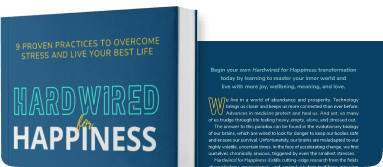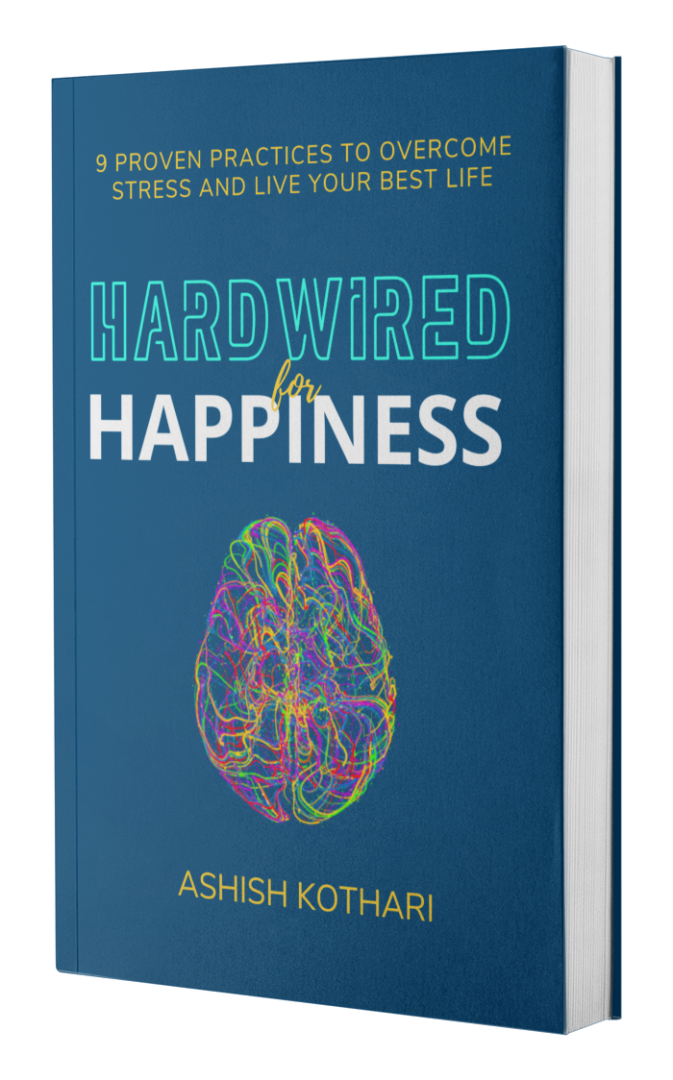Redefining Success: Why Work Should Make Your Heart Flutter

Most people think flourishing is a luxury.
I believe it’s a necessity.
And my conversation with Alison Tetrick—a world-class cyclist, scientist, and storyteller—only deepened that conviction.
We spoke about sport, sure. But what we really spoke about was life. And how too often, in both work and sport, we lose sight of why we started in the first place.
“Sometimes we forget the joy of why we are doing something in the first place. I’m not sure a lot of people today say that when they think about work – notably, their heart flutters.” —Ashish
It is true. Work is no longer the place where people come alive. For many, it has become a place of quiet suffering.
We’re here to change that.
At Happiness Squad, we believe work should be a source of energy—not exhaustion. That it should make your heart flutter—not tighten your chest. And that the foundation of sustainable performance isn’t more grit alone—but the harmony of grit and grace.
And no one embodies that harmony better than Alison.
1. Humility: The Secret Ingredient to Growth
Alison didn’t begin her journey in cycling until she was 22. Inspired by her grandfather—who only began racing bikes after he retired at 60—she stepped into the sport with fresh eyes and an open heart. He became her greatest teacher. He wasn’t just a mentor in sport, but in life.
“The best thing about cycling is it teaches you humility. There’s always going to be someone better. You’re not racing to win; you’re racing to become the best version of yourself.” —Alison
In a world obsessed with comparison and competition, this is revolutionary. Whether you’re leading a team or leading your own life, humility is the gateway to growth. It allows us to see each setback not as failure, but as feedback.
Humility is transformative for leadership today – it’s not about teaching control, but cultivating presence.
2. All We Control Is Our Effort
In a results-driven world, we often conflate effort with outcome. But as Alison so wisely put it:
“Are you upset about the result—or the effort? Because you can control your effort. You can’t always control the result.”
This truth applies as much to the boardroom as it does to the bike.

We often act as if we control everything—deals closing, people’s reactions, the stock market. But in truth, the only thing we control is our input: our intention, our actions, our presence. And ironically, it’s when we release attachment to outcomes that we often perform at our best.
This is why cultivating awareness is central to work wellbeing. Noticing the difference between what we can influence and what we must surrender is what gives us power—not power over others, but power within.
3. Purpose That Inspires You (Not Others)
“A lot of times we chase goals that someone else gives us: ‘Close that deal. Win that race. Look a certain way.’ But I had to ask—what do I want?” —Alison
How many of us have paused long enough to ask: does this goal actually excite me?
Alison’s answer was to sign up for a 206-mile gravel race that made her heart flutter. It was unorthodox, risky, and outside her comfort zone. But it changed her career—and her relationship with herself.
The lesson is clear: purpose isn’t found by looking at what others want for you. It’s uncovered by paying attention to what energizes you—even if it scares you.
As leaders, helping our people identify their “flutter” might be the most powerful thing we can do. Purpose-driven teams don’t need micromanaging—they self-propel.
4. Work Wellbeing Is Built on Alignment, Not Hustle
We’ve all been sold the myth that productivity at work is a function of hours worked and emails sent. But Alison’s redefinition of peak performance is far more resonant:
“It’s not just about numbers and data and gold medals. It’s about being aligned—mind, body, and spirit. When you’re grounded and your full self, your confidence skyrockets. And I swear, your productivity skyrockets too.”
This is not just poetic—it’s scientific. The data is clear: employees with high wellbeing are more engaged, more innovative, and more resilient. But we rarely build the conditions for this alignment.
It doesn’t mean working less. It means working from a place of inner alignment—where what you do, why you do it, and how you do it are in sync.
And when that alignment exists—within ourselves and our teams—the results follow.
5. Grit Needs Grace
Alison is known for her grit. She’s come back from crashes, concussions, and even internal injury to compete again and again. But she’s also learned that pushing isn’t always the answer.
“People say I’m strong because I crash and get back up. But sometimes, inside, I’m just broken. And what I really need is grace.” – Alison
We glorify grit in workplaces too. The late nights. The hustle. The grind.
But what we forget is that grit without grace leads to burnout. It leads to shame when we can’t keep pushing. It leads to resentment when our effort goes unnoticed.
“Sometimes pushing means pulling back. We’re so focused on busting down a door that we miss the one right next to it that’s already open.” – Ashish
Grace is what reminds us we’re human. It says: you’re doing your best. It says: it’s okay to rest. It says: let’s try again tomorrow.
We need this. Our people need this. Not as a soft skill, but as a survival skill. Because recovery isn’t a break from productivity. It’s what makes it sustainable.
The New Definition of Success
We need a new definition of success.
One that moves beyond external wins and teaches us to ask: Am I aligned? Am I present? Am I joyful?

Because when those answers are yes—our teams thrive, our impact multiplies, and we build cultures where people flourish.
At Happiness Squad, this is our mission: to turn workplaces from sources of suffering into engines of human potential. Because when work becomes a place of wellbeing, not just output, everything changes.
Let me leave you with this:
Your work should make your heart flutter.
Your goals should be yours—not someone else’s.
And the most important race you’ll ever run is not against others—but toward your full, authentic self.Let’s stop chasing. Let’s start aligning. And let’s remember:
Grit gets you to the line.
Grace helps you cross it—with joy.
Learn more about Alison on Linkedin.
Listen to the podcast with Ashish and Alison below.
Access and subscribe to all of the episodes of the Flourishing Edge Podcast here.
Visit the REWIRE Program powered up by the HAPPINESS SQUAD Community and experience your shift within your 30-day risk-free trial today. Cultivate your Self-Awareness, Gratitude, Purpose, Community, and personal growth more through the 9 Hardwired for Happiness practices. Integrate simple and proven micro-practices grounded in the science of happiness and neuroscience of habit formation in 5 minutes a day.
Make Flourishing Your Competitive Edge.


